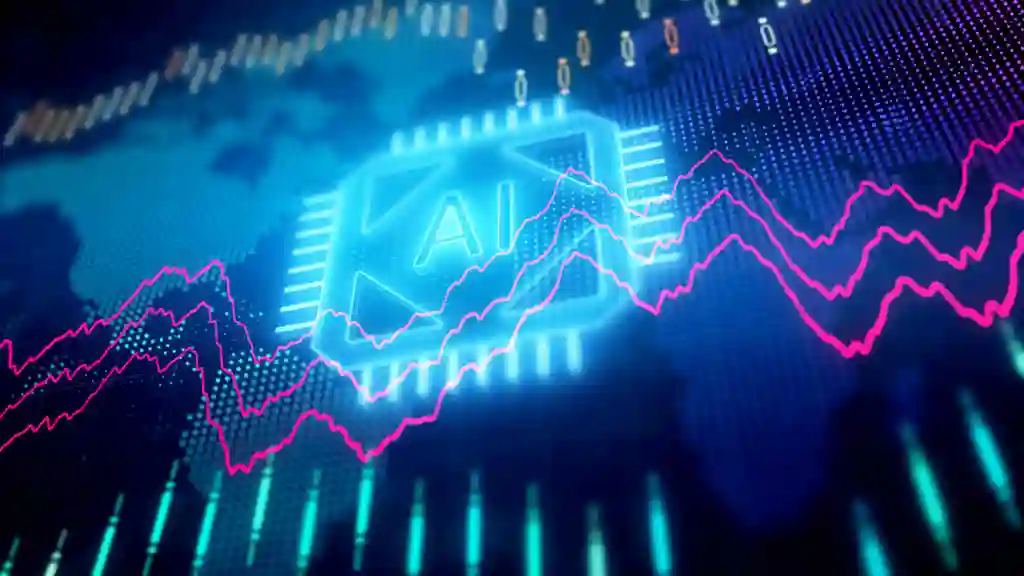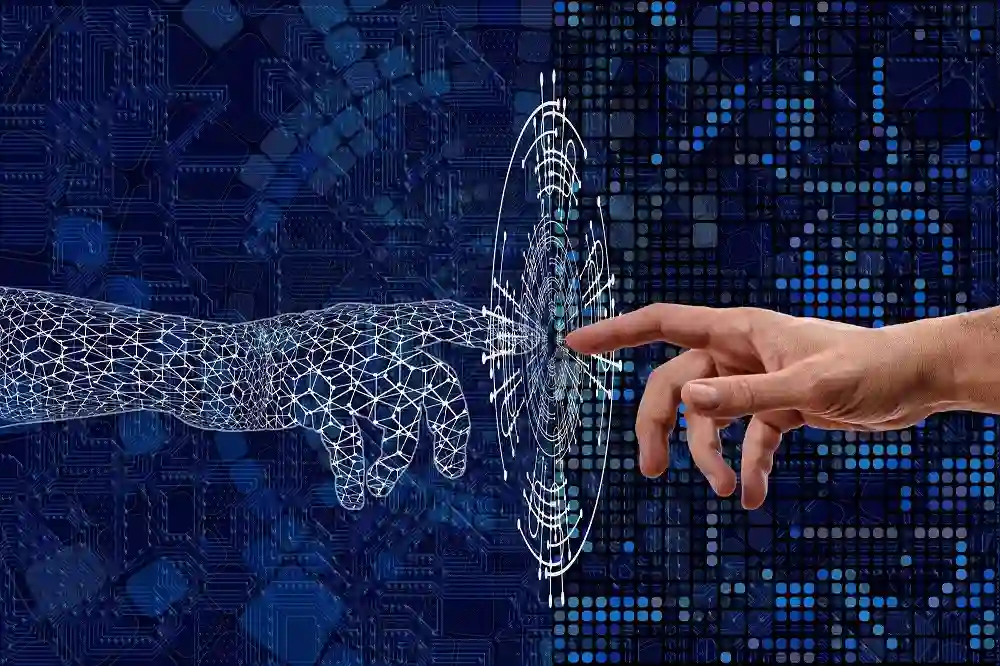Technology
The Rise of Blockchain Technology

Blockchain technology was introduced in 2009 with the inception of Bitcoin. Blockchain is a data structure that is decentralized and uses cryptography to secure the protocol.
It’s the first time that users can send value to one another without the need for a third party to verify the transaction. This technology, therefore, has so many opportunities going forward and has often been compared to the internet revolution.
In this article, we explore all the industries that blockchain technology can change. We cover the main protocols looking to revolutionize the world and analyze whether it’s attainable or not.
Games
The data structure of blockchain is being heavily used in the gaming space. For instance, play to earn gives players of crypto games an economic incentive to play. This is either in the form of a cryptocurrency itself or via non-fungible tokens (NFTs).
Blockchain technology is also starting to be used in the online casino industry. It can most certainly help with the transparency and fairness of games. In addition, blockchain can provide a robust system for preventing fraud and stopping money laundering.
Furthermore, blockchain is an ideal solution in online sweepstakes casinos because it keeps everything within the law, especially in the USA. US players can claim a welcome bonus, play hundreds of games, and even get rewards in the loyalty program.
Healthcare
In healthcare, one major issue is access to sensitive medical records, making the prevention of breaches vital. Because of the nature of blockchain records are highly secure, while at the same time cannot be altered without the network agreeing to it.
One more part of healthcare that blockchain can help revolutionize is payments and billing. Through the use of smart contracts, insurance payments can be sent much faster. As long as the conditions are met, this means patients can claim from their insurance company quickly.
Finally, in the modern age, we’ve seen the rise of remote doctors. They can diagnose issues over a video call and send the relevant doctor’s note so patients can get their prescriptions fast. With blockchain, all the data is encrypted so databases will only show relevant records between medical professionals, insurance companies, and patients.
Identity
Identity is one issue that blockchain can revolutionize immediately, because of the nature of its immutability. Today, the regular system, used by governments is highly centralized meaning, it can be under threat from just one data point.
Blockchain identity systems put the users back in control of their data, which allows sharing with relevant government agencies. Not only is this model much cheaper, but it’s much better for the end user, as they will always be in control of their data.
Lastly, blockchain can help with identity fraud and theft. As users own their data, and the structure cannot be tampered with or hacked, it’s nearly impossible for malicious third parties to get their hands on your important identity documents like a passport or driving license.
Finance
Many commentators believe that finance will be the first industry that blockchain will subsume. There are so many opportunities, and all of it is called Decentralized Finance or Defi.
Defi allows users to lend and borrow cryptocurrency using smart contracts. This could be extended to the regular money system in USD, GBP, or Euros. However, the biggest challenge facing digital currencies is the lack of privacy concerns.
For instance, a US dollar coin – which is completely digital will give the US government a big control of the daily lives of individuals. Yet, the scheme is something the Federal Reserve is looking into, especially when sending large amounts of money to the 12 branches within the United States.
Supply chain management
The data structure of blockchain makes it crucial as a technology that can be used in supply chain management across the world. As the ledger of blockchain is distributed and highly secure, each part of a product journey can be easily marked to prevent any losses.
With smart contracts, things will become much more efficient and automated. The current system of supply-side management, it’s still reliant on real people signing off on whether products have been delivered or not.
As blockchain technology takes people out of the equation and instead uses smart contracts, administrative errors will plummet. Not to mention as blockchain is transparent as everyone can see it, it negates the need for paperwork.
Technology
8 Influential Companies in AI Investments for 2025

In 2024, artificial intelligence (AI) reached an inflection point. Before 2024, AI could mostly recognise patterns and generate text (like writing an article or answering questions). But now, AI can think in a more advanced way and solve complex problems.
Such an upgrade has happened due to investments made by some major companies. They are leading the way in AI advancements and performing different roles. For example, some are making hardware (NVIDIA, AMD), some are providing cloud services (Microsoft, Amazon), and some are focusing on AI research and data (Google, OpenAI, IBM, Palantir).
In this article, let’s check out eight influential companies heavily investing in the AI sector.
1. NVIDIA (NVDA) – The AI hardware king
NVIDIA makes powerful computer chips (GPUs). These chips allow AI systems to learn and improve responses. Almost every company that builds AI needs NVIDIA’s chips.
Because of this, NVIDIA’s stock price has also surged in the past few years. Also, the company is investing in new AI startups to make even better technology.
2. Microsoft (MSFT) – The AI cloud giant
By the end of 2025, Microsoft is expected to invest about USD 80 billion (Rs. 6.93 lakh crores) in AI data centres. For the unaware, these data centres allow AI to work better and faster. They have a cloud service called Azure, which companies use to run AI programs.
Microsoft also works with OpenAI (the company behind ChatGPT) and is adding AI to its popular software like Word, Excel, and Teams. This is making Microsoft one of the most influential companies in AI.
3. Alphabet (GOOGL) – The AI master
For the unaware, Alphabet is the company that owns Google. They have been using AI for a long time which helps Google in:
- Making search results better
- Improving YouTube recommendations
- Creating smart assistants like Google Assistant
They also build special AI computer chips and have their own AI models, like Gemini. Due to the large volume of data possessed by Google, it is making AI smarter and better.
4. Amazon (AMZN) – AI in shopping and cloud
Amazon uses AI in two big ways:
- First, AI is helping the company improve shopping by recommending products to customers and making faster deliveries.
- Second, Amazon Web Services (AWS) is one of the biggest cloud computing platforms. Companies use it to run their AI applications.
However, recently, Amazon has faced AI capacity constraints despite significant investments. Currently, they are working to enhance AWS with AI and custom chips, but hardware delays and electricity shortages are creating hurdles.
5. OpenAI – The AI research leader
OpenAI is a company that focuses completely on ideating and developing AI models that can write, create images, and even help in coding. They created their flagship product, ChatGPT, which reached 10 lakh users in just five days after its launch on November 30, 2022.
OpenAI is a fast-growing organisation and is currently planning to become a public company by launching its first-ever IPO. They are also working on major projects, like “Stargate,” which could make AI even more powerful.
6. Palantir Technologies (PLTR) – AI for data and security
Palantir focuses on analysing huge amounts of data. They make sense of complex information and primarily help governments and military agencies. By investing in AI technologies, the company finds patterns in data that humans might miss. Due to the increased usage of AI for security and defence, Palantir is in a good position to grow in future.
7. Advanced Micro Devices (AMD) – The AI chip challenger
AMD is a company that makes computer chips, just like NVIDIA. While NVIDIA is the leader, AMD is catching up fast and building its own AI-focused chips.
Since AI needs powerful hardware to run, AMD ensures that companies have alternatives to NVIDIA’s chips. They are expected to increase revenue in the future as more people and companies buy AI chips.
8. IBM (IBM) – The AI advisor for businesses
IBM helps other companies use AI. Instead of making AI for regular people, IBM focuses on AI for businesses. They provide tools like Watson (their AI system) that allow companies to enhance productivity through automation.
IBM also lets banks, NBFCs, and healthcare providers use AI to improve their work efficiency.
Conclusion
In 2024, the total value of the global AI market was $214 billion and by 2030, it is expected to grow to $863.79 billion. Also, the market is expected to grow at an average annual growth rate of 32.19% from 2025 to 2030.
This astonishing growth rate is achieved because of these eight influential companies:
- NVIDIA and AMD are making powerful chips that help AI work faster.
- Microsoft, Amazon, and Google are providing cloud services to run AI smoothly.
- OpenAI is researching and developing advanced AI models.
- IBM and Palantir focus on AI for businesses and security.
Additionally, AI is also transforming online marketplaces. It is making shopping easier with better recommendations and automated customer support. In the coming years, AI will play an even bigger role in everyday life and will make businesses smarter!
Technology
Personalized Zoom Backgrounds to Stand Out in Meetings

In today’s digital landscape, virtual meetings are the new normal. From team check-ins to client presentations, your on-screen presence matters. A personalized office background for Zoom is one of the simplest ways to elevate your professionalism and help you stand out during video calls. A well-crafted background reflects your brand, personality, and professionalism, ensuring you leave a lasting impression.
Custom Designs for a Unique Touch
A custom background goes beyond aesthetics—it reflects your unique style and communicates your attention to detail. Whether you prefer sleek, minimalist layouts or vibrant, creative visuals, a personalized background will ensure you’re memorable for all the right reasons.
For inspiration, browse through Zoom background office options designed to suit various industries and meeting styles. From professional co-working spaces to creative studio setups, having a distinctive background can help you communicate your professionalism while remaining visually engaging.
Custom backgrounds are especially helpful for those working in creative or client-facing roles, as they can subtly incorporate branding elements, company logos, or even motivational quotes relevant to your field.
How Colors Impact Your Presence
The colors you choose for your virtual background play a crucial role in shaping how others perceive you during meetings. Different colors convey different emotions:
- Blues are calming and convey trustworthiness—ideal for corporate professionals.
- Greens evoke balance and clarity, perfect for educators and consultants.
- Reds and oranges are bold and energizing, suitable for creative industries or marketing professionals.
Choosing a background color that complements your clothing can enhance your appearance on screen, making your presence more cohesive and polished.
For those who use Microsoft Teams, custom Teams background images can ensure visual consistency across different platforms while offering a professional and visually appealing experience.
Make Every Meeting Count
Your virtual background is more than just a backdrop—it’s an extension of your brand and professionalism. Whether you’re aiming for minimalism or bold creativity, the right office background for Zoom helps you project confidence and competence in every meeting.
Invest in a personalized background to make your next video call stand out, reflect your unique style, and create a polished, lasting impression in every interaction.
Technology
The Role of Data Extraction in Enhancing Employee Experience

Employee experience is a crucial factor in any business. A positive experience keeps workers engaged and productive.
One key way to improve this is through data extraction. It helps in decision-making and streamlining processes.
Below are ways data extraction plays a role in improving employee experience.
Improving Onboarding Processes
A smooth onboarding process helps new employees adjust quickly. Data extraction simplifies paperwork by pulling relevant information. It reduces manual work for HR teams.
Employees can access needed documents faster. Automated systems ensure accurate data entry. This reduces errors and delays.
A streamlined process makes new hires feel welcome. They can focus on learning their roles. It sets the tone for a positive experience.
Enhancing Payroll Accuracy
Employees expect timely and correct salaries. Errors in payroll create frustration. Data extraction helps process salaries accurately. It ensures tax deductions and benefits are correct.
HR teams spend less time fixing errors. Automated reports provide transparency. Employees gain trust in the payroll system. Smooth payroll processing reduces financial stress. This leads to a better work experience.
Optimizing Performance Reviews
Performance reviews impact career growth. Data extraction helps collect feedback efficiently. Managers can access employee records easily. It provides insights into strengths and weaknesses.
Employees receive clear performance evaluations. Timely reviews improve motivation. Better data leads to fair assessments. Employees feel valued and heard. This improves engagement.
Boosting Training and Development
Continuous learning enhances skills. Data extraction identifies skill gaps. It helps managers recommend relevant courses. Employees get access to personalized training.
Training records stay updated automatically. Learning progress is easier to track. Employees can improve at their own pace. A well-trained workforce feels more confident. This boosts job satisfaction.
Improving Employee Engagement
Engaged employees contribute more to a company. Data extraction helps track engagement levels. Surveys and feedback forms are processed faster. Management gets real-time insights.
They can respond to concerns quickly. Personalized strategies improve engagement. Employees feel heard and supported. A better work culture is created. This leads to higher retention rates.
Streamlining Communication
Clear communication is essential for productivity. Data extraction organizes messages and reports. Employees access information faster. Important updates reach the right people. It reduces miscommunication.
Collaboration improves between teams. Employees spend less time searching for information. A structured system enhances efficiency. This leads to a more connected workplace.
Managing Workload Effectively
Overloading employees affects performance. Data extraction analyzes work distribution. It helps managers balance tasks. Employees avoid burnout. Productivity remains steady.
Workflows become more organized. Teams function more efficiently. Employees feel less pressure. A healthy work-life balance is promoted.
Enhancing Remote Work Experience
Remote work requires efficient data management. Data extraction enables access to work documents. Employees retrieve files quickly. Virtual collaboration tools work better.
Communication remains smooth. Performance tracking is simplified. Workflows stay uninterrupted. Employees experience less frustration. Remote work becomes more effective.
Simplifying Employee Benefits Management
Employees need clarity on benefits. Data extraction organizes benefits-related data. Information is easily accessible. It reduces confusion about health plans and policies.
HR teams respond to queries faster. Employees make informed choices. Transparency builds trust. A well-managed benefits system improves satisfaction.
Improving Workplace Safety
Safety policies protect employees. Data extraction helps track safety incidents. Risk areas are identified. Preventive measures are implemented.
Compliance records stay updated. Employees feel secure at work. Quick responses to incidents minimize risks. A safe workplace enhances morale.
Enhancing Time Management
Effective time tracking improves productivity. Data extraction automates time logs. Employees track work hours accurately. Overtime is calculated correctly.
Managers plan shifts better. Project deadlines are met. Time-related conflicts are minimized. Employees focus on tasks without worries. Better time management increases efficiency.
Boosting IT Support Efficiency
Employees need reliable tech support. Data extraction assists IT teams. Issue tracking becomes easier. Past tickets are analyzed for patterns.
Recurring problems are resolved faster. Downtime is minimized. Employees get quick solutions. A seamless tech experience improves workflow. This reduces frustrations.
Reducing Administrative Burden
Administrative work takes up valuable time. Data extraction reduces paperwork. Routine tasks are automated. Employees spend less time on manual entries. Work processes become smoother.
Efficiency increases across departments. Resources are used effectively. Employees focus on strategic tasks. Less admin work means a better work environment.
Increasing HR Efficiency
HR teams handle employee-related matters daily. Data extraction streamlines HR functions. It automates document management. Employee records are maintained accurately.
Hiring processes become faster. Queries are addressed quickly. HR staff focus on engagement strategies. Employees receive better support. HR operations become more effective.
Enhancing Team Collaboration
Teamwork is crucial in any business. Data extraction organizes shared resources. Employees find needed information easily. Communication between teams improves.
Project management becomes simpler. Workflows remain transparent. Task delegation is clearer. Employees work together efficiently. Collaboration tools perform better. A connected team achieves more.
Improving Employee Feedback Processing
Feedback helps businesses grow. Data extraction gathers and processes feedback faster. Management analyzes trends easily. Employees see real changes from their input.
Anonymous feedback remains confidential. Timely responses improve workplace issues. Employees feel valued. A feedback-friendly culture is built. This boosts morale.
Managing Compliance and Regulations
Compliance ensures legal protection. Data extraction monitors regulation updates. Employee records stay compliant. Audit preparations become easier.
Violations are detected early. Policy enforcement is streamlined. Employees avoid penalties. A compliant workplace creates confidence. Stability improves.
Supporting Employee Well-being
A happy workforce performs better. Data extraction identifies well-being trends. Stress levels and workload issues are tracked. HR can address concerns early. Wellness programs are customized.
Employees receive timely support. Mental health resources are accessible. A well-being-focused workplace retains talent. Healthier employees contribute more.
Enhancing Data Security for Employees
Employee data security is crucial in any organization. Data extraction ensures sensitive employee information is managed safely. Using a data extraction sdk helps encrypt and secure records. This reduces the risk of data breaches.
Employees feel confident that their personal details are protected. Compliance with data privacy laws is maintained.
Secure access controls prevent unauthorized usage. Strong security measures enhance trust. Employees focus on their work without security concerns.
Enhancing Workplace Automation
Automation reduces repetitive tasks for employees. Data extraction enables automated workflows. Routine reports generate without manual input. Employees focus on high-value tasks instead.
Productivity increases across departments. Automation minimizes human errors. Workflows become smoother and faster. Employees experience less stress from manual work. A more efficient workplace enhances job satisfaction.
Improving Employee Recognition Programs
Recognition motivates employees to perform better. Data extraction helps track employee achievements. Automated recognition systems identify top performers. Managers can personalize rewards easily.
Employees feel valued for their contributions. Real-time recognition boosts morale. Tracking performance trends becomes seamless. A structured program improves retention rates. Employees stay engaged and committed.
Supporting Workforce Diversity and Inclusion
A diverse workplace fosters creativity and innovation. Data extraction helps analyze workforce demographics. Managers track diversity goals more effectively. HR can address inclusion gaps with insights.
Employee feedback on inclusivity is gathered faster. Bias in hiring and promotions is reduced. Workplace culture becomes more welcoming. Employees feel represented and included. Diversity programs gain measurable success.
Enhancing Career Growth Opportunities
Employees seek career advancement within companies. Data extraction identifies skill development trends. Personalized career paths are created. Managers recommend relevant training programs.
Employees track progress towards promotions. Internal mobility opportunities are highlighted. HR provides targeted mentorship programs.
Career growth plans increase employee retention. A structured development plan boosts motivation.
Enhancing Workplace Flexibility
Flexible work arrangements improve employee satisfaction. Data extraction helps track work patterns and productivity. Managers use insights to optimize remote and hybrid setups.
Employees get access to schedules and resources easily. Work-life balance improves with flexible hours. Automated systems manage shift allocations efficiently.
Employees experience fewer scheduling conflicts. Businesses retain talent by offering adaptable work models. A flexible workplace increases overall job happiness.
Improving Crisis Management and Response
A fast response to crises ensures employee safety. Data extraction helps monitor real-time risk factors. Emergency plans are easily accessible to employees. Automated alerts notify teams during urgent situations.
Managers track crisis responses for future improvements. Employees receive quick updates on workplace safety.
Data-driven decisions reduce confusion in emergencies. Well-managed crises build trust among employees. A strong response system minimizes disruptions.
Strengthening Employee Retention Strategies
High turnover affects business stability. Data extraction helps analyze employee retention patterns. Insights reveal common reasons for resignations. HR teams develop targeted retention programs.
Personalized career growth plans boost loyalty. Managers address concerns before employees leave. Better benefits and incentives increase job satisfaction.
Employees feel valued when their needs are prioritized. A strong retention strategy builds a committed workforce.
Enhancing Internal Knowledge Management
Access to knowledge helps employees perform better. Data extraction organizes internal documents efficiently. Employees find needed information without delays.
Searchable knowledge bases improve problem-solving. Training materials are easily accessible for learning. Collaboration increases with well-structured data. New hires adapt quickly with guided resources.
Businesses reduce time wasted on redundant queries. A strong knowledge system improves overall productivity.
Discover the Role of Data Extraction in Enhancing Employee Experience
Data extraction plays a vital role in enhancing employee experience. It streamlines processes, reduces workload, and boosts engagement.
Employees benefit from accurate information and better management. A positive work environment improves retention and performance.
Businesses that prioritize these improvements see long-term success. Data-driven strategies create a more supportive workplace.
Should you wish to read more, visit our blog page. We’ve got more topics for you!
-

 Travel1 year ago
Travel1 year agoOnboardicafe.com Login Exploring the Delights of Onboardicafe
-

 Food & Recipes12 months ago
Food & Recipes12 months agoFive Food Products You Must Avoid Giving to Your Infant
-

 Sports1 year ago
Sports1 year agoThe Most Popular Sports In The World
-

 Health & Fitness10 months ago
Health & Fitness10 months agoSuboxone Tooth Decay Lawsuits and the Pursuit of Justice Against Indivior
-

 Sports9 months ago
Sports9 months agoSmart Solutions for Football Field Maintenance
-

 Entertainment1 year ago
Entertainment1 year agoNavigating the Web: The Ultimate List of Tamilrockers Proxy Alternatives
-

 Technology4 months ago
Technology4 months agoSustainable Practices in Video Production: Reducing the Carbon Footprint
-

 Sports9 months ago
Sports9 months agoWearable Tech and the Future of Football










